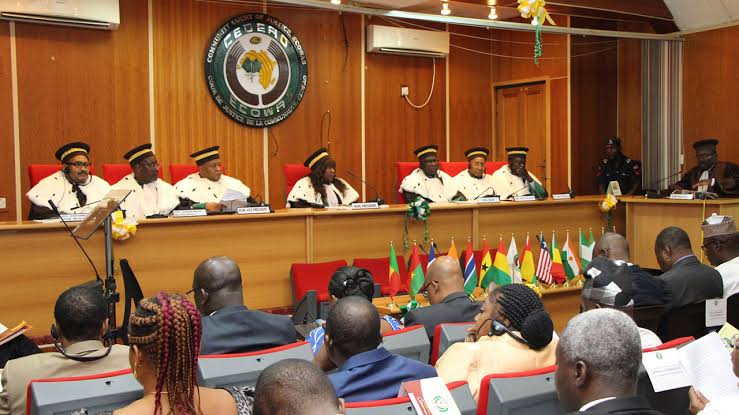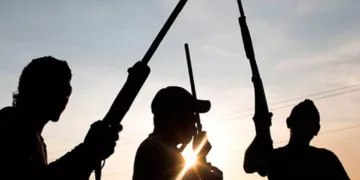Senator Ali Ndume, representing Southern Borno Senatorial District, has criticised the Economic Community of West African States (ECOWAS) sanctions imposed on Niger following the July coup d’état.
He argues that the sanctions disproportionately impact the people of eight Nigerian states bordering Niger, as well as over 120,000 Borno State’s refugees fleeing Boko Haram attacks.
Senator Ndume further asserts that the ECOWAS sanctions, implemented in response to the military coup deposing President Mohamed Bazoum, violate international humanitarian law. He expressed these concerns in a Saturday evening interview with journalists in Maiduguri.
While expressing his opposition to the military coup, Senator Ndume stressed that punishing innocent citizens through sanctions that hinder their basic needs is unacceptable.
He noted that cutting off electricity, restricting movement, and preventing food, fuel, and water from reaching Niger negatively impacts not only Nigeriens but also Nigerian Internally Displaced Persons (IDPs) in Niger and border states.
Senator Ndume proposes negotiations with the coup leaders to release President Bazoum and restore power to the democratically elected government as the most suitable course of action.
He stressed the plight of over 120,000 Borno residents sheltering in Niger due to the Boko Haram conflict, particularly those from Abadam, Guzamala, Malum Fatori, and Kukawa who are facing additional hardship due to the sanctions.
He further said the cultural and linguistic ties between Nigeria and Niger, especially bordering states like Kano, Katsina, Borno, Yobe, Jigawa, Sokoto, Zamfara, and Kebbi. He argues that the five-month-long border closure imposed by the sanctions contradicts the ECOWAS protocol promoting free movement.
He said, “There are over 120,000 residents of Borno state who are taking refuge in Niger as a result of the Boko Haram conflict, especially people from Borno and Yobe who are now facing unnecessary hardship due to the economic sanctions after the July 30 coup.
“I am one of those that are against the action taken by ECOWAS leadership. I believed that the decision was rushed and it was not the right thing because it affects my people and the state.
“Over 120,000 indigenes of Borno state from Abadam, Guzamala, Malum Fatori and Kukawa local government areas migrated to the Niger Republic during the days of Boko Haram attacks and Niger people accepted them as their brothers and sisters.
“Nigeria and Niger Republic is only separated by the borderline imposed by colonial government, eight states in the North sharing border with Niger, such as Kano, Katsina, Borno, Yobe, Jigawa, Sokoto, Zamfara, Kebbi are our neighbours, our culture and language is same.
“For five months now the borders are closed, which means you cannot freely move while the ECOWAS protocols are saying there should be free movement, the sanctions are not well thought out.
“By the constitution of Nigeria ,even the president is not supposed to take that action without the approval of the national assembly, the decision cannot be taken uniliterate.
“Niger government has been supporting Nigeria even during the Biafran war, France supported Biafra, but Niger, a former colony of France, supported Nigeria and in fact with military support.
“The sanctions are not affecting the juntas but innocent citizens especially women, children and vulnerable people who have no hand in the coup.”
The senator called on President Bola Ahmed Tinubu, as a matter of urgency to reconsider the sanctions particularly, on the humanitarian needs of the people.
He also appealed to President Tinubu to lift the sanctions first and negotiate with the junta through the Nigerian former heads of state.











